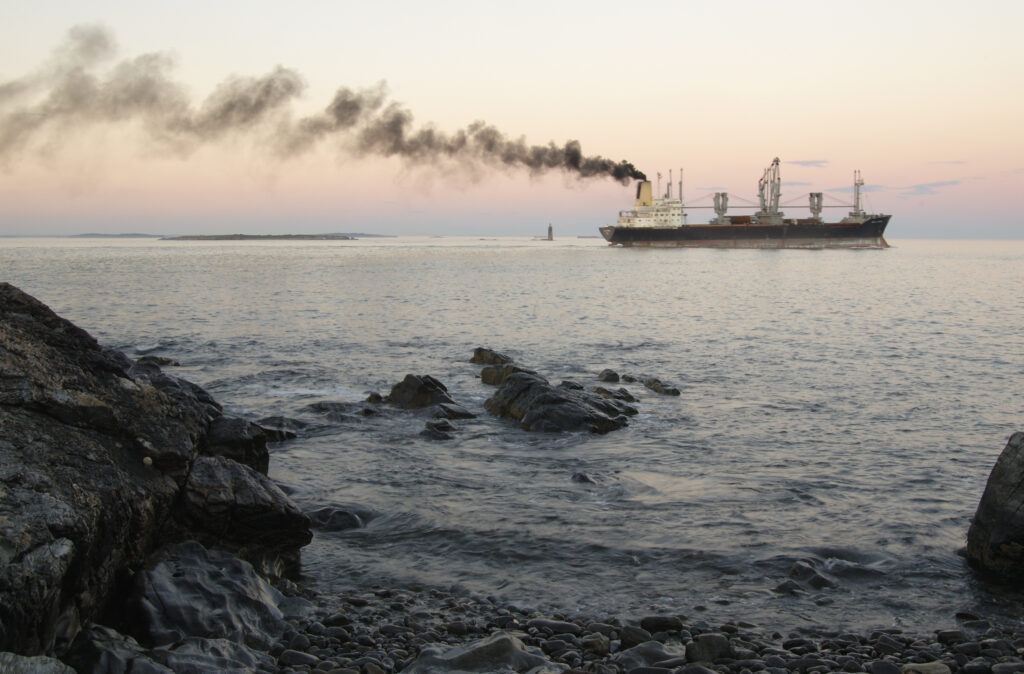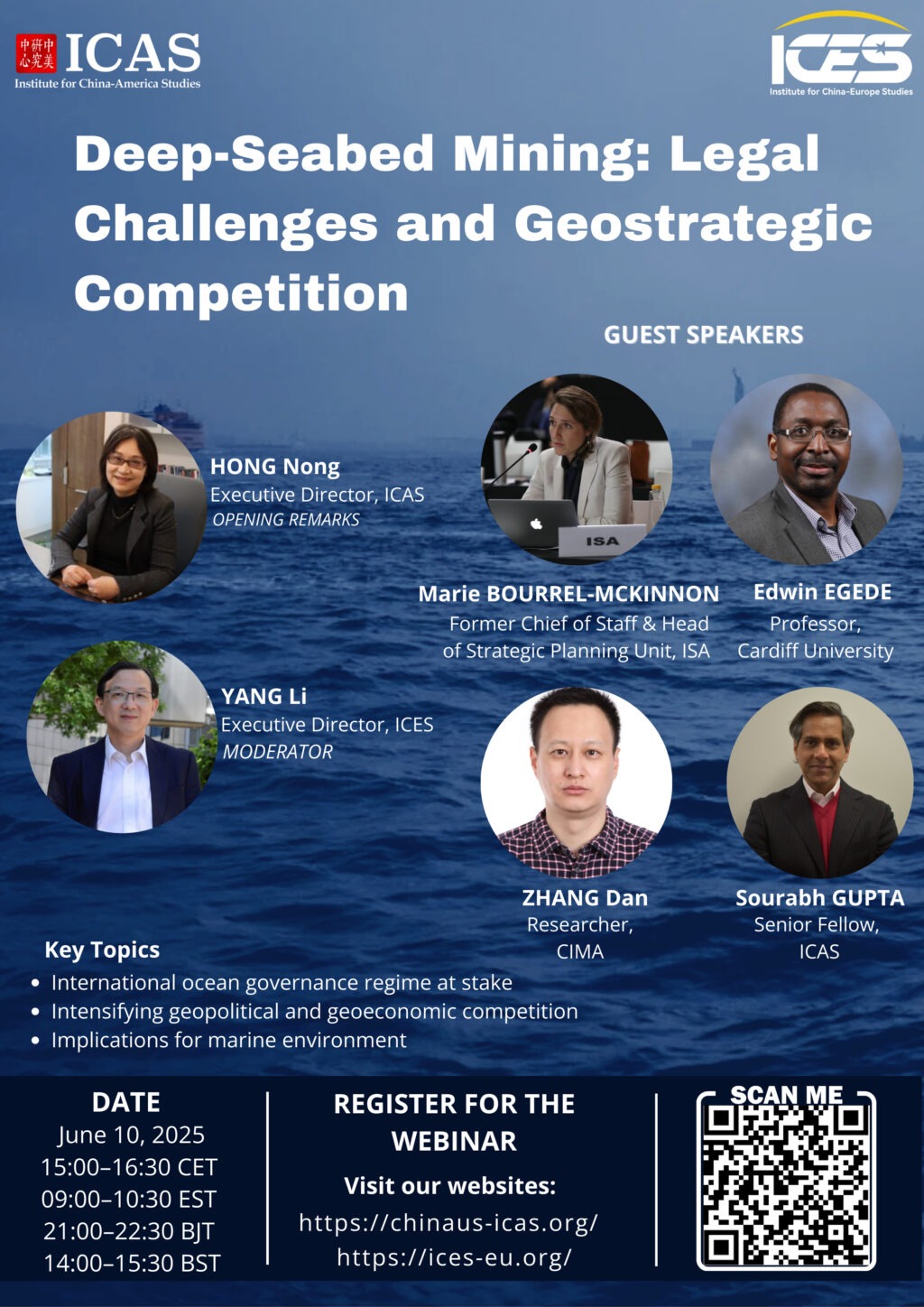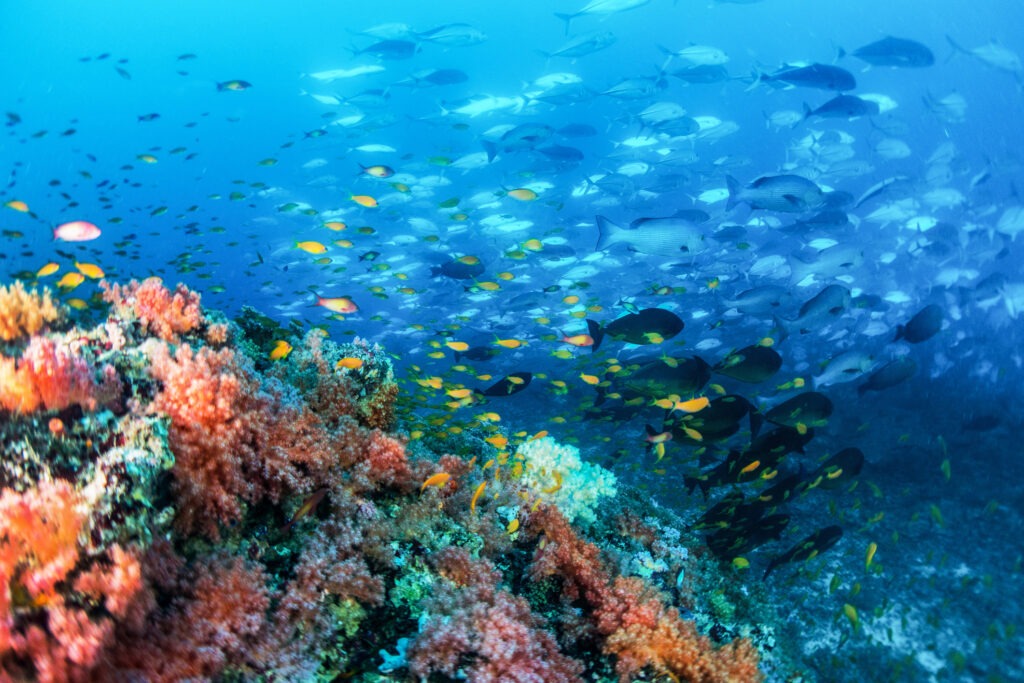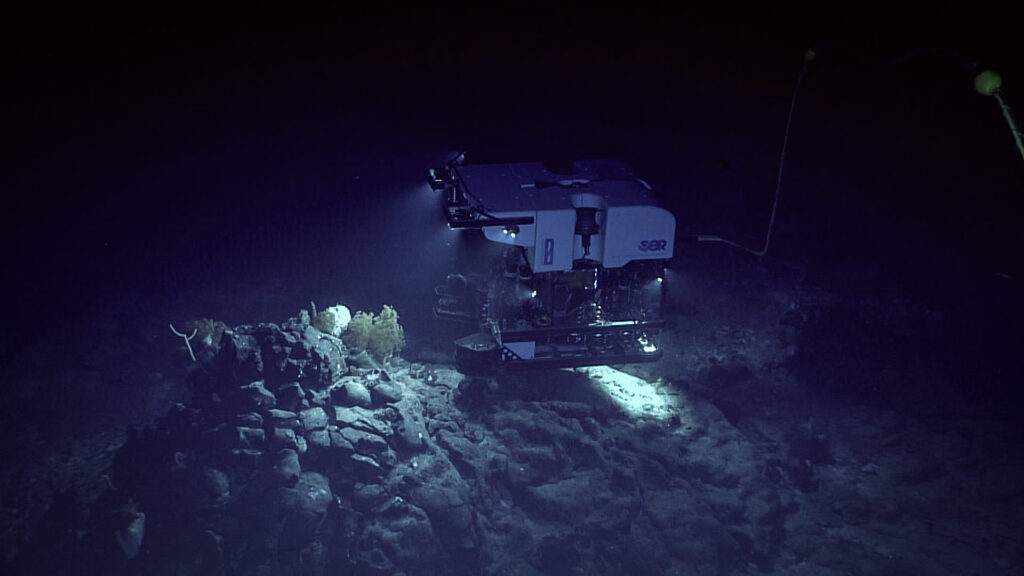
ICAS Maritime Affairs Handbill (online ISSN 2837-3901, print ISSN 2837-3871) is published the last Tuesday of the month throughout the year at 1919 M St NW, Suite 310, Washington, DC 20036.
The online version of ICAS Maritime Affairs Handbill can be found at chinaus-icas.org/icas-maritime-affairs-program/map-handbill/.
“Liberia to Launch Campaign for Re-Election to Category A of the International Maritime Organization Council”
May 23 – Front Page Africa
[Liberia]
Liberia has launched its campaign for re-election to Category A, a group of 10 states with the largest interest in providing international shipping services, of the International Maritime Organization (IMO) Council for 2026–2027. Such action emphasises its role as the only African country in this top-tier group. With the world’s largest ship registry and strong compliance records, Liberia seeks to maintain its leadership in global maritime governance.
“Nigeria and France Deepen Ties in Maritime Affairs”
May 22 – Business Day
[Africa, the Atlantic]
Nigeria and France have reinforced their maritime and oceanic collaboration, with highlights in their shared interests in marine governance, security, and sustainable development. This partnership aims to enhance cooperation in maritime safety, environmental protection, and the sustainable use of ocean resources, reflecting both nations’ commitment to strengthening ties in the maritime domain.
“Malaysia to Enhance Maritime Security to Enhance Maritime Prosperity”
May 21 – The Sun
[the Malacca Strait]
Malaysia announced its plan of strengthening its maritime security to combat illegal fishing, smuggling, and encroachments in its waters. The strategy includes deploying advanced surveillance systems, using unmanned vehicles, boosting inter-agency coordination, and enhancing maritime governance to safeguard Malaysia’s national resources and economic interests.
“Nigeria and Tanzania Explore Partnership on Maritime Value Chain”
May 21 – The Guardian
[Africa, Shipping]
The Nigerian Maritime Administration and Safety Agency (NIMASA) and Tanzania Shipping Agencies Corporation (TASAC) are exploring a partnership to enhance maritime collaboration. Discussions focus on areas such as flag and port state control, ship registration, seafarer training, environmental protection, and digital transformation. Both agencies aim to formalize this cooperation through a Memorandum of Understanding, promoting a unified African voice in global maritime governance.
“Danish Geodata Agency Advances Maritime Cooperation in Ghana with Lake Volta Training Initiative”
May 19 – Hydro-International
[Denmark, Ghana]
Denmark is collaborating with Ghana to improve maritime safety on Lake Volta through a training initiative focused on digital navigation and hazard mapping. The program, part of a broader strategic cooperation, uses satellite data and crowdsourced information to enhance operational safety and local capacity.
“Denmark Launches Remote Pilotage Trials for Maritime Safety”
May 19 – Ship-Technology
[Denmark, Kattegat Sea, Western Baltic Sea]
Denmark is conducting remote pilotage trials, allowing ship pilots to guide vessels from land using real-time data transmission to enhance safety and efficiency. The initiative, led by DanPilot – Denmark’s state pilot service, and marine manufacturer Danelec, aims to reduce fuel consumption and improve maritime operations in Danish waters.
“PolyU Leverages AI and Big Data to Advance Maritime Safety and Management”
May 16 – Ship Technology
[Hong Kong, SAR]
The Hong Kong Polytechnic University (PolyU) is using AI and big data to enhance maritime safety, improving vessel monitoring, emergency response, and port congestion analysis in Hong Kong. Their innovations include deep learning algorithms for 98.6% vessel classification accuracy and AI-driven trajectory analysis detecting illegal fishing activities with 90% accuracy.
“Multi-National Naval Exercise to Help Counter Illegal Fishing Off West Africa”
May 15 – Baird Maritime
[West Africa, U.S., France, Portugal, Brazil, Denmark, U.K., Gulf of Guinea]
The multinational naval exercise Obangame Express 2025 brings together 30 African nations and international partners to combat illegal fishing and maritime crime in the Gulf of Guinea. The operation strengthens regional enforcement, naval interoperability, and legal coordination, protecting coastal economies from billions in lost revenue.
“Trump Replaces Nominee for Maritime Administrator”
May 7 – Maritime Executive
[U.S.]
President Donald Trump has replaced his nominee for Maritime Administrator, withdrawing Capt. Brent Sadler in favor of Capt. Stephen Carmel, a former Maersk Line Ltd. executive. Carmel, a U.S. Merchant Marine Academy graduate, has extensive experience in commercial maritime operations and has received strong industry support.
“North Korean Destroyer Seen Severely Damaged after Failed Launch”
May 22 – Bloomberg
[North Korea]
On May 21, 2025, North Korea’s second 5,000-ton Choe Hyon-class destroyer suffered severe damage during a failed launch at the Chongjin shipyard, with leader Kim Jong Un in attendance. As noticed through satellite images, the ship did not leave the shipway completely with parts remaining on land, with possible structural damage. Such a setback suggests that Kim is pushing naval modernization faster than the country’s shipbuilding industry can safely deliver.
“UN Says Global Security Depends on Maritime Security”
May 20 – United Nations
[United Nations]
At a United Nations Security Council session on May 21, 2025, Secretary-General António Guterres emphasized that “without maritime security, there can be no global security.” He highlighted escalating threats such as piracy, trafficking, and cyberattacks, noting a 35% rise in maritime crime incidents in 2024. Guterres called for enhanced international cooperation and adherence to maritime law to address these challenges.
“ASEAN Maritime Security Dialogue Set in Manila on May 21-23, 2025”
May 20 – GMA News
[ASEAN, Philippines]
The ASEAN Maritime Security Dialogue will bring together ASEAN member states, academics, and maritime experts to discuss regional security challenges like strategic autonomy and cooperation in the South China Sea. The event aims to advance a rules-based maritime order, emphasizing ASEAN-led solutions without the involvement of great powers like the U.S. or China.
“Police Force Bolsters Maritime Security with Two New Patrol Vessels”
May 19 – Sun TCI
[Turks and Caicos Islands]
The Royal Turks & Caicos Islands Police Force (RTCIPF) has bolstered maritime security by commissioning two new patrol vessels, the Sea Contender and Sea Challenger. This initiative, supported by the UK Foreign, Commonwealth & Development Office (FCDO) and the UK Royal National Lifeboat Institution (RNLI), aims to strengthen law enforcement and coastal protection in the region.
“UK Pledges to Restore Red Sea Maritime Security”
May 15 – The Mirage
[U.K, Red Sea, Yemen]
The United Kingdom is leading efforts to restore maritime security in the Red Sea, emphasizing freedom of navigation and regional stability while supporting the Yemen Coast Guard. UK Deputy Permanent Representative James Kariuki announced plans to launch the Yemen Maritime Security Partnership alongside the Government of Yemen and international partners in June.
“Saildrone Lands $60m To Launch Ai-Powered Maritime Security Hub In Europe”
May 13 – Tech Funding News
[Denmark, Baltic Sea, North Sea]
Saildrone has secured $60 million to establish an AI-powered maritime security hub, enhancing surveillance across waters. The initiative will deploy unmanned surface vehicles (USVs) equipped with advanced sensors and AI algorithms to strengthen maritime domain awareness.
“France Kicks Off POLARIS 25 – French Navy’s Largest Exercise”
May 12 – Naval News
[France, Atlantic Ocean]
France has launched POLARIS 25, its largest naval exercise to date, running from May 12 to June 15, 2025. The exercise involves over 3,000 personnel, more than 20 ships, and over 40 aircraft from France and allied nations, including the U.S., U.K., and Italy. POLARIS 25 aims to enhance readiness for high-intensity, multi-domain operations across land, sea, air, cyber, space, and electronic warfare. This exercise reflects France’s strategic vision of “winning the war before the war.”
“India and Pakistan both Tightened Controls over Ports and Shippings due to Kashmir Conflict”
May 9 – The Maritime Executive
[India, Pakistan, Indian Ocean]
As the conflict between India and Pakistan erodes, both India and Pakistan have implemented stringent maritime security measures. India has banned Pakistani ships from its ports, while Pakistan has reciprocated by closing its ports to Indian vessels. Additionally, both nations have heightened security at major ports and coastal areas to mitigate potential threats as the conflict in Kashmir continues.
“Aircraft Carrier USS Nimitz (CVN-68) Cruising at the South China Sea During Deployment”
May 6 – U.S. Newsweek
[South China Sea]
The oldest commissioned aircraft carrier of the U.S. Navy, the USS Nimitz (CVN-68), has arrived at the South China Sea for its final regularly scheduled deployment aiming to maintain the country’s regional military appearance.
“Iranian Arms Ship Make Northbound Transit Through the Suez Canal”
May 3 – The Maritime Executive
[Iran]
On May 3, 2025, the Iranian vessel Elyana, linked to IRISL and was placed under U.S. sanctions, transited the Suez Canal en route to Libya. Suspected of arms transfers towards Ansar Allah (the Houthis) in Yemen previously, the ship has raised regional security concerns.
“Global Tensions Ratchet Up Shipping Sector Risk”
May 27 – Marine Link
[U.S., China, Red Sea]
Global maritime tensions are escalating, leading to disruptions in global supply chains and higher costs for shippers. These challenges are forcing companies to reroute vessels, navigate stricter regulations, and adapt to increasing geopolitical risks in key shipping lanes.
“Shipping Rates Rise as Exports from China Surge”
May 21, 2025 – Investopedia
[China]
After the U.S. paused its tariffs on China, shipping volumes from China surged. Freight rates were driven by up to 19% on key ocean routes. The tariff relief spurred a 275% jump in the U.S.-bound bookings, highlighting China’s pivotal role in global trade flows and supply chain volatility.
“Women in Maritime Day: Survey Highlights Progress, But Barriers Remain”
May 18 – Maritime Executive
[IMO, WISTA]
The Women in Maritime survey highlights growing gender diversity, with women now comprising 19% of the maritime workforce but just 1% of active seafarers. Despite progress, barriers remain, particularly in technical and leadership roles, underscoring the need for continued efforts to foster inclusivity in the industry.
“Trump Backs New Ship Registry in Virgin Islands to Boost Maritime Power”
May 12 – Reuters
[U.S.]
On May 12, 2025, the U.S. Virgin Islands announced its participation in a new federal proposal to establish a U.S. international ship registry within the territory. The plan, supported by President Trump, is aimed to expand the U.S.-flagged commercial fleet by offering shipowners a more flexible yet more cost-effective registry alternative. This move seeks to reduce the U.S. shipping industry’s overall reliance on foreign vessels, while boosting the U.S. civilian maritime capacity.
“The U.S.- China Agreement on the 90-day Hold in Tariffs Leads to Significant Surge in Freight Shippings”
May 12 – CNBC
[Tariffs, U.S.-China]
On May 12, 2025, the United States and China agreed to a 90-day reduction in tariffs. This agreement would lead to a significant surge in freight shipments and a rapid increase in shipping prices, as companies rushed to move goods during the temporary reprieve. The shipping industry, which had experienced a downturn due to the earlier tariff increases, is forecasted to see a rapid rebound in activity in Q3. However, the temporary nature of the deal would also introduce new uncertainties such as the unstable shipping rates that creates a more volatile trade environment.
“Maersk Warns Global Container Volumes Could Drop Due To Trade War”
May 9, 2025 – India Shipping News
[Container Shipping]
Maersk warned that global container volumes may drop in 2025 due to rising trade tensions, especially after U.S. tariffs led to a 30–40% decline in China-U.S. shipments. As a result, the company has adjusted its global container volume forecast from an expected 4% growth to a range between a 1% decline and 4% growth.
“Ageing Global Fleet faces a Challenge Throughout the Shipping Industry”
May 9 – Hellenic Shipping News
[Shipbuilding]
The global shipping industry faces challenges from an aging fleet, with many vessels surpassing 20 years of service. This aging trend, coupled with limited new ship orders, raises concerns about meeting future environmental regulations and operational efficiency. Shipowners are hesitant to invest in new builds amid uncertainties over alternative fuels and stricter emissions standards.
“Indian Registry Continues Growth as MOL Transfers LPG Carrier”
May 7 – The Maritime Executive
[India]
India’s ship registry continues to expand as MOL reflagged its LPG carrier Green Sachi under the Indian flag—its eighth such vessel. The move reflects India’s push to grow its domestic fleet through incentives and maritime policy reforms.
“Coral Spawning Muted in Singapore after 2024 Mass Bleaching Event”
May 25 – The Straits Times
[Singapore]
Singapore’s coral reefs experienced reduced spawning in 2025, which affected nearly half of the country’s coral colonies. While some corals have recovered, scientists suggest they may not have regained enough energy for full reproduction, though conditions could improve if environmental stressors remain low.
“IUCN Presents Key Marine Conservation Contributions at Barcelona Convention Focal Points Meeting”
May 23 – IUCN
[The Mediterranean]
At the 17th Meeting of SPA/BD Focal Points under the Barcelona Convention, IUCN presented major contributions to marine conservation in the Mediterranean. These included identifying ecologically significant marine areas, enhancing MPA management tools, and supporting the Post-2020 Strategic Action Programme for Biodiversity. The efforts aim to advance regional cooperation and sustainable use of marine resources.
“ASEAN, Japan, And UNDP Launch Blue Carbon and Finance Profiling Project to Accelerate Sustainable Blue Economy in Southeast Asia”
May 21 – UNDP
[Southeast Asia]
On May 21, 2025, ASEAN, Japan, and UNDP launched the ASEAN Blue Carbon and Finance Profiling (ABCF) Project in Jakarta to advance sustainable blue economy efforts in Southeast Asia. The initiative focuses on identifying and valuing carbon stored in marine and freshwater ecosystems, with the aim to unlock innovative financing solutions that drive climate resilience and inclusive economic growth across ASEAN countries and Timor-Leste.
“Japan to Launch Offshore Blue Carbon Study for CO2 Capture and Storage”
May 20 – Kyodo News
[Japan]
Japan is initiating an offshore “blue carbon” research project on capturing carbon dioxide through cultivated sea plants and storing it in the deep sea to accelerate decarbonization. The Environment Ministry will commission the Japan Agency for Marine-Earth Science and Technology to study how seaweed behaves when submerged at considerable depths and to assess the environmental impact of such carbon capture and storage projects.
“Allseas on Offshore Pipelay Duty as Porthos Takes over North Sea Gas Assets for CCS Revamp”
May 9 – Offshore Energy
[North Sea, Netherland]
Switzerland-headquartered offshore pipeline installation, heavy lift, and subsea construction contractor Allseas is putting an offshore pipeline in place for a development that aims to become the first offshore CO2 transport and storage project in the European Union. To this end, a former Dutch gas field and its infrastructure are being repurposed for carbon capture and storage (CCS).
“Koppö Energia Decides For Thyssenkrupp Uhde’s Green Methanol Technology”
May 9 – Cyprus Shipping News (CSN)
[Finland]
Koppö Energia, a joint venture company in Finland, has selected Thyssenkrupp Uhde’s green methanol technology for its upcoming e-methanol plant in Kristinestad, Finland. The facility will produce 450 metric tons per day of e-methanol using renewable hydrogen and CO₂ captured from a waste incineration plant in Vaasa.
“Berge Bulk Begins Pilot for Onboard Carbon Capture System on Bulker”
May 8 – The Maritime Executive
[Shipbuilding Industry, Carbon Capture System]
Berge Bulk, a global shipping company, has launched a pilot carbon capture system on its Ultramax bulker Berge Yotei, with the aim of cutting cut CO₂ emissions by up to 30%. Developed by Value Maritime, the system captures 15 tonnes of CO₂ daily and supports the company’s long-term decarbonization goals.
“Climate Change is Both Sinking, and Lifting, South Africa”
May 3 – DW News
[South Africa]
South Africa’s coastal cities face severe erosion and flooding due to rising sea levels, while drought-induced water loss is causing parts of the country to lift out of the ocean. Scientists warn that while land uplift may seem beneficial, it comes at the cost of worsening drought conditions inland.
Maritime transport is fundamental to global commerce, facilitating around 90% of global trade by volume. However, it is also a significant source of greenhouse gas (GHG) emissions, accounting for approximately 2% to 3% of the world’s carbon emissions. Reducing these emissions is viewed as both an environmental necessity and an economic imperative. The international nature of shipping makes it challenging to regulate through national policies.
The leading global regulatory body for this sector is the IMO, a specialized agency of the United Nations, headquartered in London. The IMO has been actively advancing efforts to address GHG emissions. Its initial strategy from 2018 aimed to cut emissions by 50% by 2050. This target was significantly revised in July 2023, with the IMO adopting a more ambitious strategy aiming for net-zero GHG emissions from international shipping “by or around 2050”.

Beyond carbon, the industry has also focused on reducing other harmful pollutants such as sulfur oxides (SOx), nitrogen oxides (NOx), and particulate matter, with technologies like scrubbers and catalysts being used for compliance with existing regulations like the IMO 2020 sulfur cap and IMO Tier III NOx standards. The industry itself is highly diverse, encompassing companies with large fleets as well as smaller operators, and different vessel types have varying operational needs, which adds complexity to the challenge of implementing widespread change.
Between April 7 and 11, 2025, the IMO approved a new regulatory package, the IMO Net-Zero Framework, during its Marine Environment Protection Committee (MEPC 83) session. This framework is a significant step towards achieving net-zero emissions by or around 2050. It is the first in the world to combine mandatory emissions limits and GHG pricing across an entire industry sector, introducing a global fuel standard and a pricing mechanism through compensation units or contributions to an IMO Net-Zero Fund. These measures are set for formal adoption in October 2025 and expected entry into force in 2027.
In late March 2025, discussions at the maiden Africa Strategic Summit on Shipping Decarbonization in Abuja, Nigeria, underscored the continent’s potential and the need for sustainable practices. Nigeria’s Minister of Marine and Blue Economy urged leveraging Africa’s renewable energy potential to become a global leader in green shipping. Similarly, the UK launched its Maritime Decarbonisation Strategy on March 25, 2025, setting ambitious goals for carbon-free shipping by 2050.
Expert commentary indicates that while the industry is “stepping up” in areas like target-setting and advocacy, progress remains “weak” in implementing initiatives like green premium offerings and green corridors. They point to challenges such as a lack of clarity on the IMO’s future measures and uncertainty regarding fuel pathways. Experts note the difficulty of decarbonizing a diverse industry and the apprehension among shipowners about investing in new, expensive fuel technologies without guaranteed infrastructure and regulatory support. However, signs of progress are noted, including ships paying for emissions in European ports from early 2024 and the emergence of new dual-fuel vessels. These recent events highlight the critical phase the industry is in, transitioning from setting targets to implementing concrete, internationally coordinated measures while navigating significant practical and economic challenges.
Achieving net-zero in maritime transport requires transformational change, including major investments in alternative fuels such as ammonia, hydrogen, and methanol, alongside technological advancements and infrastructure development. The transition faces challenges related to costs, safety, and fairness, making international cooperation essential. The concept of green corridors is being explored as a way to accelerate decarbonization. This shift affects not just environmental policy but also global trade costs, supply chains, air quality in port communities, and job security for maritime workers. A just transition is pivotal to ensure fairness for developing nations and professionals in the shipping industry. Watch for progress in alternative fuel supply chains, port infrastructure, and green corridor initiatives, as these developments will shape the industry’s future. Continued international collaboration and concrete action are essential to the success of maritime decarbonization.
This issue’s Spotlight was written by Kailyn Provitt, Part-Time Research Assistant.
Government Releases & Other Press Statements
Analyses & Opinions
Other Research

Deep-Seabed Mining: Legal Challenges and Geostrategic Competition
Hosted by ICAS and Institute for China-Europe Studies (ICES)
June 10, 2025 (Online)
On Tuesday, June 10, ICAS, in collaboration with the Institute for China-Europe Studies (ICES), will host a webinar on the legal challenges and geostrategic competition of deep-seabed mining. This event will feature Ms. Marie Bourrel-McKinnon (former ISA official), Mr. Sourabh Gupta (ICAS), Mr. Dan Zhang (CIMA), and Prof. Edwin Egede (Cardiff University). The discussion will be moderated by ICES Executive Director Li Yang, with opening remarks from ICAS Executive Director Dr. Nong Hong. The event will be hosted via Zoom, and registration for the event will be required.
To virtually join us for this exciting conversation, please sign up via the QR code on the poster or register below:
Halfway There: Tracking the Global Momentum for the BBNJ Treaty
by Nong Hong
April 29, 2025
Key Takeaways


Diverging Currents: U.S.–China Strategies on Deep Seabed Mining and the Future of Ocean Governance
by Nong Hong
May 16, 2025
In April 2025, the Trump administration’s executive order on deep seabed mining marked a sharp shift in U.S. ocean policy that challenged multilateral norms and reignited debates over resource access and global governance. As Washington opts for unilateral licensing, Beijing continues to work through the International Seabed Authority, underscoring divergent legal philosophies and strategic visions…

The Institute for China-America Studies is an independent nonprofit, nonpartisan research organization dedicated to strengthening the understanding of U.S.-China relations through expert analysis and practical policy solutions.
1919 M St. NW Suite 310,
Washington, DC 20036
icas@chinaus-icas.org
(202) 968-0595
© 2025 INSTITUTE FOR CHINA-AMERICA STUDIES. ALL RIGHTS RESERVED.